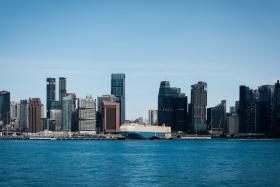Budget 2016: What to expect
A new Budget is to be presented in Parliament today. The Constitution does not allow a new term of Government to tap on the previous term's fiscal surpluses - they will be stored as past reserves. This limits the room for large expenditure.
DIGGING INTO PAST RESERVES?
If there is a need to dip into the past reserves, both the President and Parliament must give their consent as they hold the two keys to these reserves.
The only time the Government got the President's approval to dip into past reserves to help cover the Budget was during the 2009 economic recession.
What does this mean?

Tax
WITHOUT THE SURPLUS CUSHION, THE GOVERNMENT IS LIMITED FROM SPENDING ABOVE THE REVENUES IT IS EXPECTED TO EARN.
Mizuho Bank senior economist Vishnu Varathan said: "During the previous term, the Government had a buffer of surpluses to have the confidence to spend.
"But in this new term of Government, there won't be the surpluses. They can spend only as much as the amount estimated to be collected in taxes, if the Government doesn't want to run a deficit."
OCBC Bank economist Selena Ling added: "The FY16 Budget could be 'prudent' - it does not run an outright deficit position but allows room for off-budget measures at a later stage should the economy require it."

SMEs
The Budget is likely to focus on safeguarding fundamentals like jobs.
Mr Varathan said: "To safeguard jobs, the Government might consider ploughing more resources into the SMEs (small and medium-size enterprises), which are engines of Singapore's economy."
He added that Budget 2016 might look into providing temporary relief for SMEs, which by the "multiplier effect" can indirectly take care of jobs and households.
"Instead of having a one-off handout to households, helping SMEs will create a cascading effect, ensuring that SMEs don't let go of workers, and thus helping households and families."

Fewer big-ticket items?
Economists agree that given the "sluggish" economy, there might not be as many big-ticket "goodies" as seen in previous years but the Government will continue strengthening social safety nets for the vulnerable groups.
Ms Ling said: "Other sweeteners could also be more targeted tax relief to support healthcare and childcare costs to promote child-bearing and strengthen family bonds.
"It would be safe to say it's better to keep the powder dry for now so we have extra ammunition if things go downhill from here."

Last year's Budget
AMOUNT: $68.2 BILLION
Where the money went?
These are non-revised figures. Revised figures will be announced today.
Five things about the budget

1 This will be the first time Finance Minister Heng Swee Keat (above) is presenting the Budget.
2 The year referred to in the Budget does not start on Jan 1 but refers to the Government's financial year, which begins on April 1 and ends on March 31 the following year.
3 Tax revenues form about 90 per cent of the Government's operating revenue, with corporate tax as the largest contributor.
4 The Budget will reveal estimates for revenue and expenditure for the upcoming financial year, as well as a revised account of the current financial year.
5 The Budget comprises the Government's operating revenue, total expenditure, special transfers and net investment returns contribution.
Get The New Paper on your phone with the free TNP app. Download from the Apple App Store or Google Play Store now


